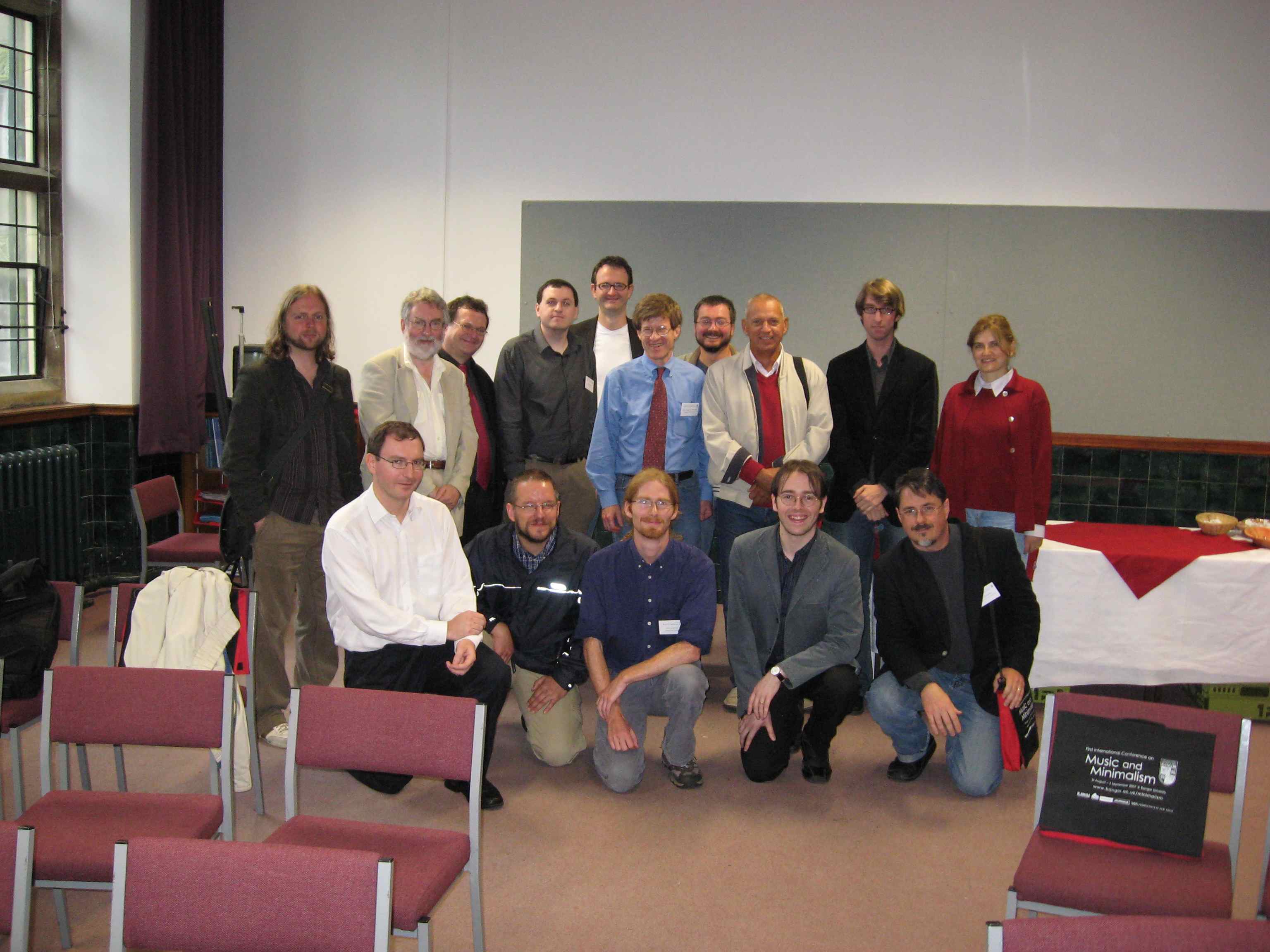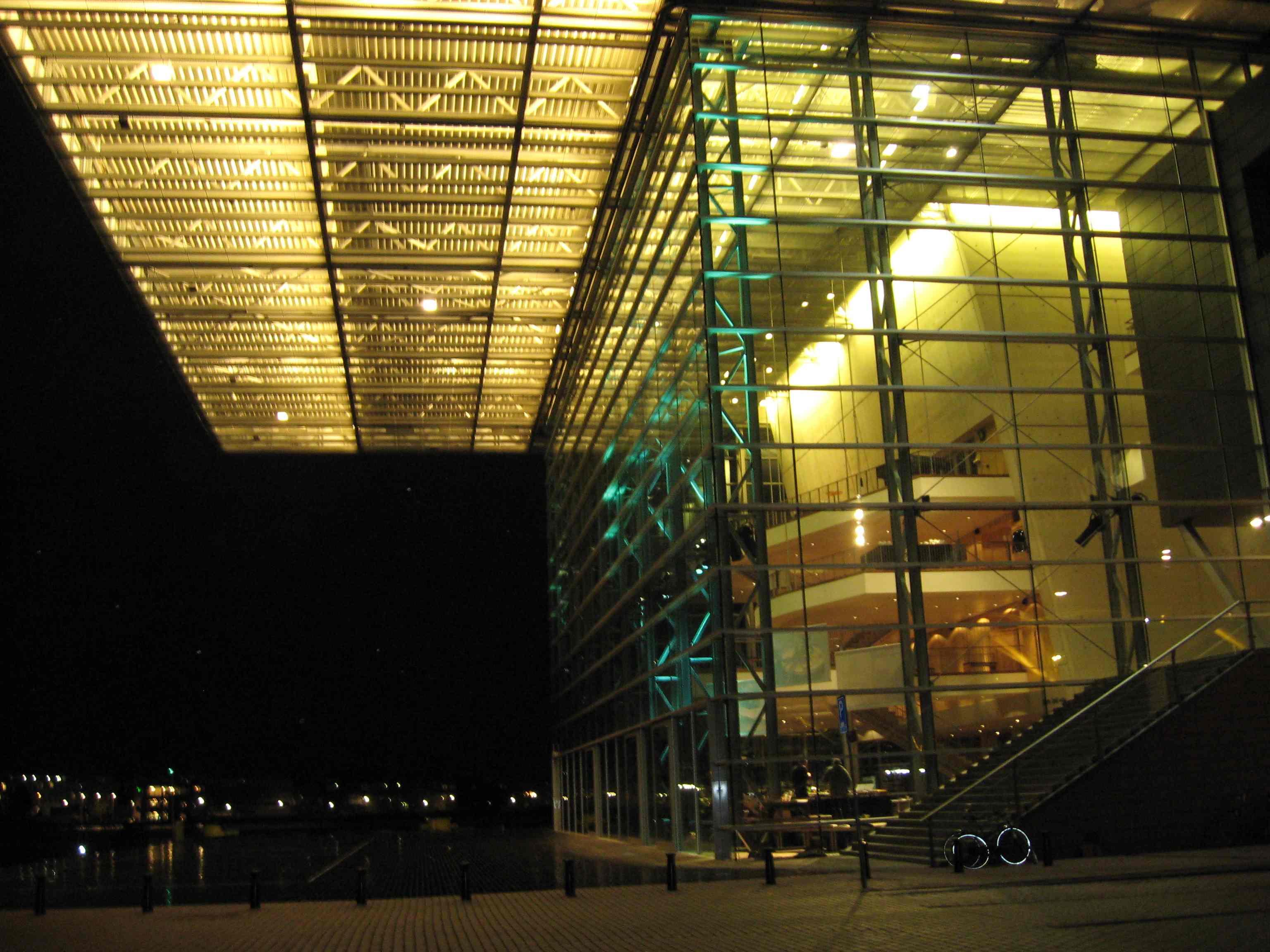
AMSTERDAM – The new Muziekgebouw hall on the Amsterdam waterfront, which only opened about a year ago, is a spectacular space – or rather, spectacular collection of spaces. In addition to the comfortable and precision-engineered main hall, there is the upstairs black box called Bimhuis (billed as a space for jazz and improv, but actually perfectly well-suited for new music in general), as well as several vast foyers superb for concerts, sound installations, and the like. I’m halfway attending the Output festival of new music employing electric guitars, but mainly hanging out with John Luther Adams, two of whose installations are involved in the festival. Guitarist extraordinaire Fred Frith improvised along with John’s Veils last night, and I’ve also been hanging out with Renske Vrolijk, Anthony Fiumara, Tim Brady, Derek Bermel, and the ubiquitous Samuel Vriezen:
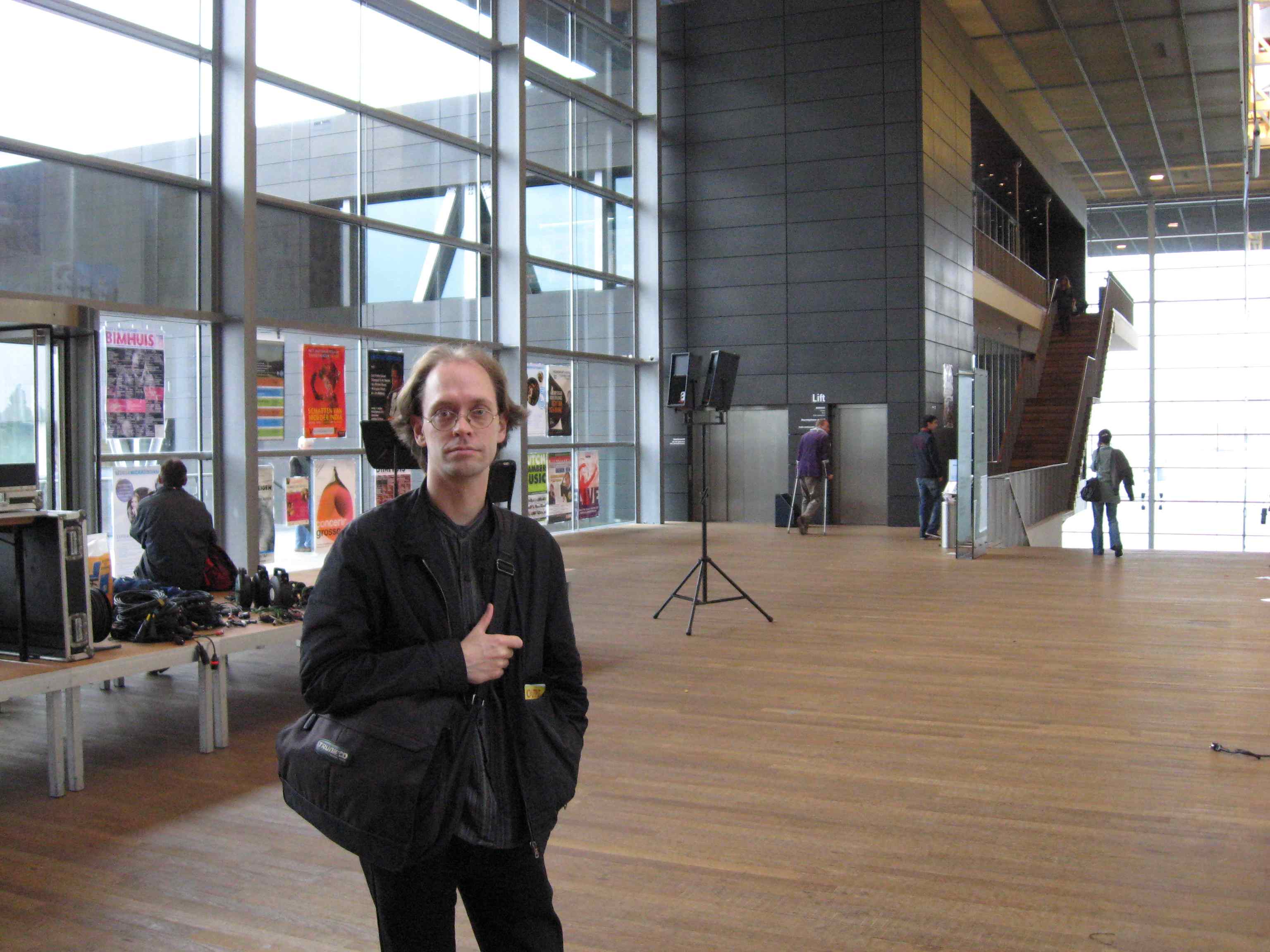
The Muziekgebouw is also where the Orkest de Volharding will perform my piano concerto October 31. It appears to be where almost all Amsterdam new-music activity takes place these days.

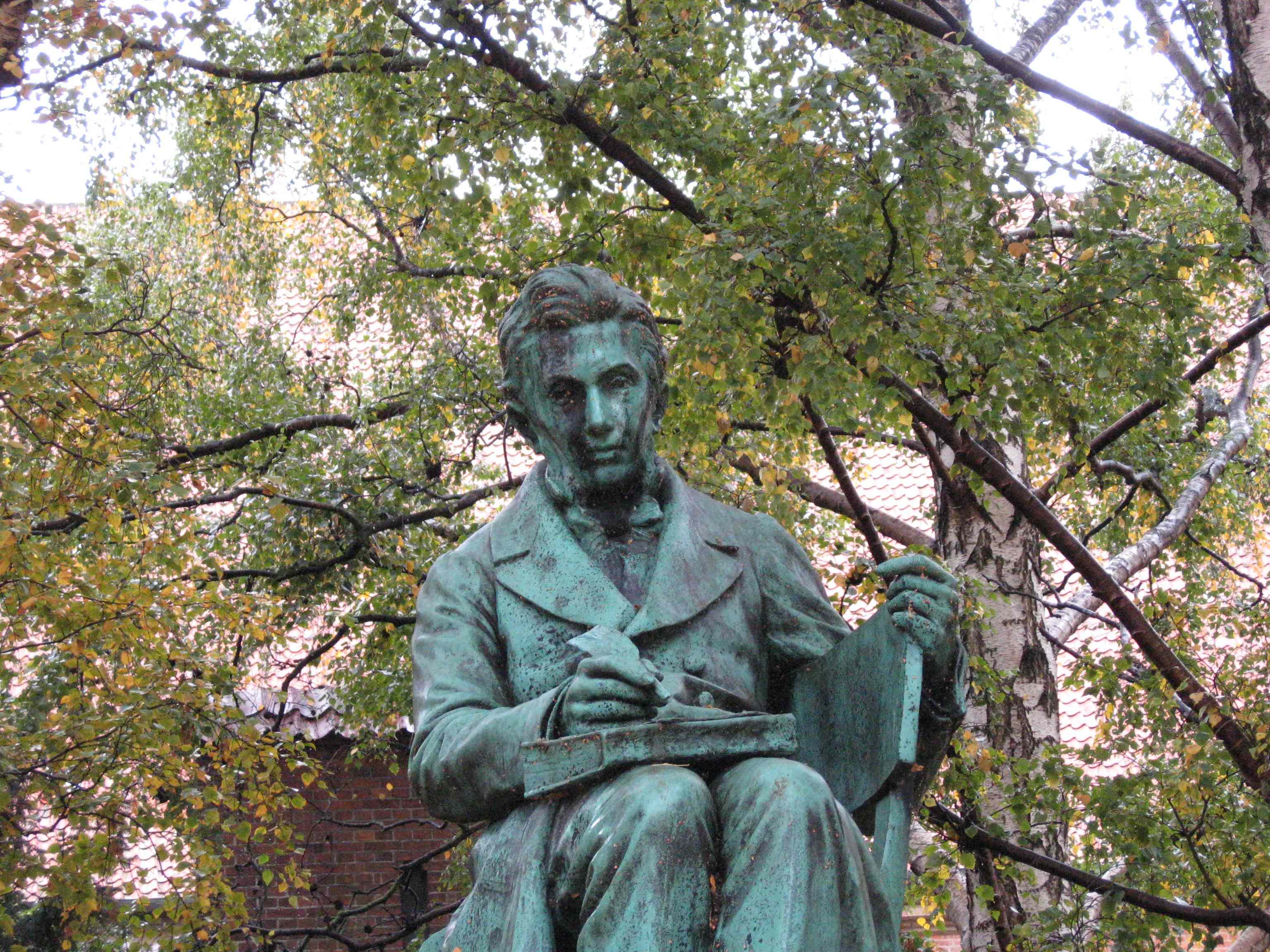

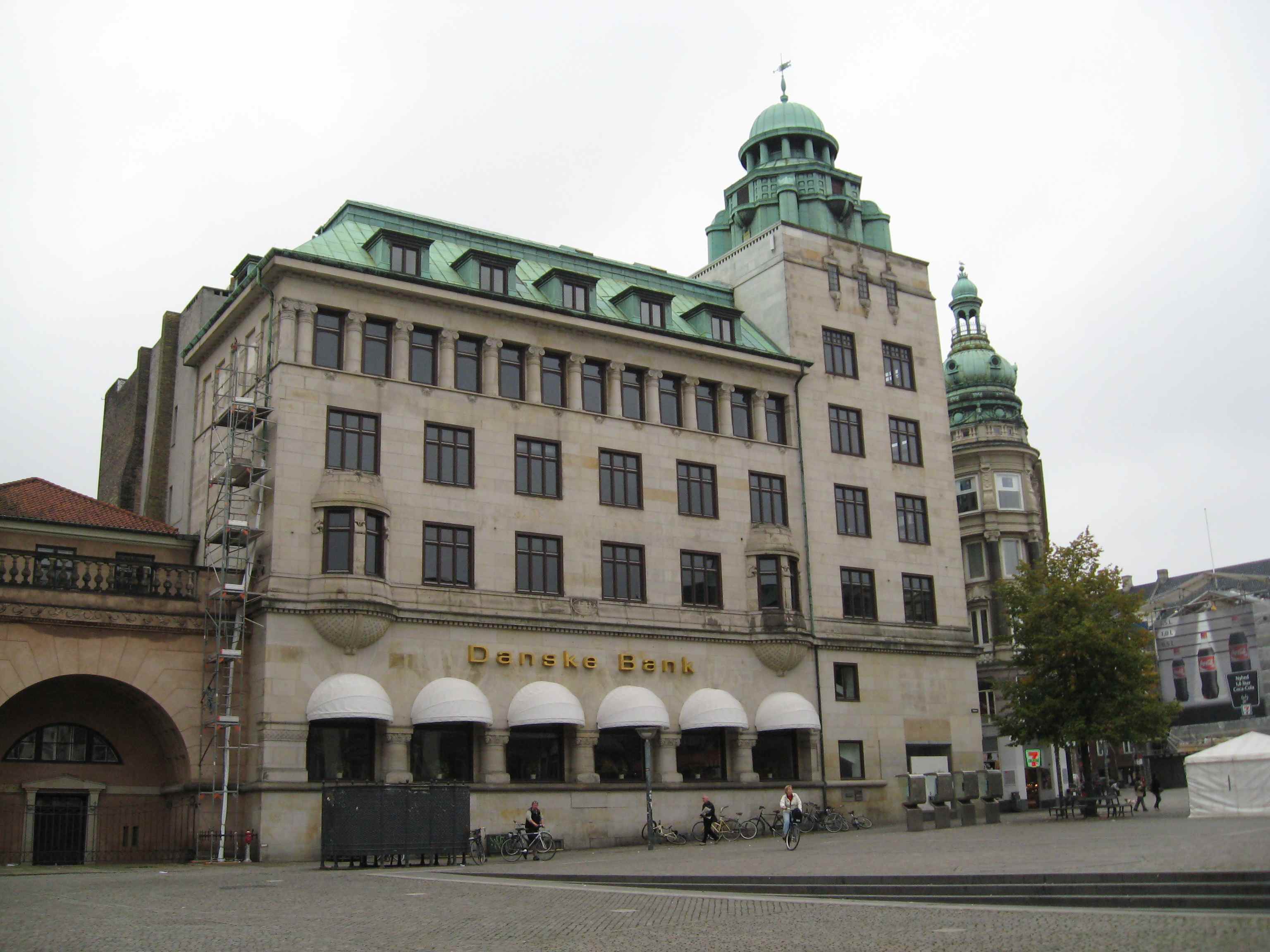
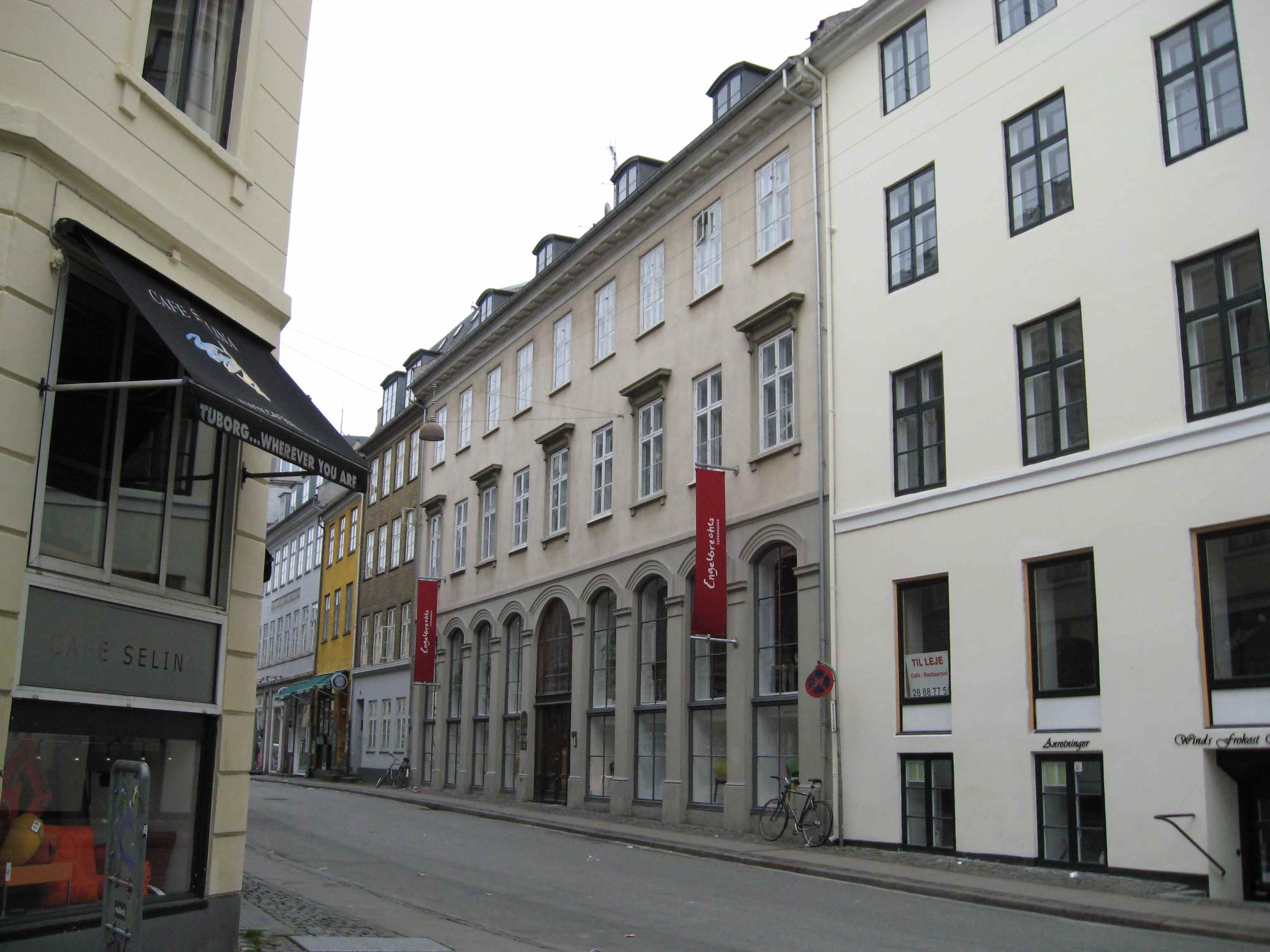

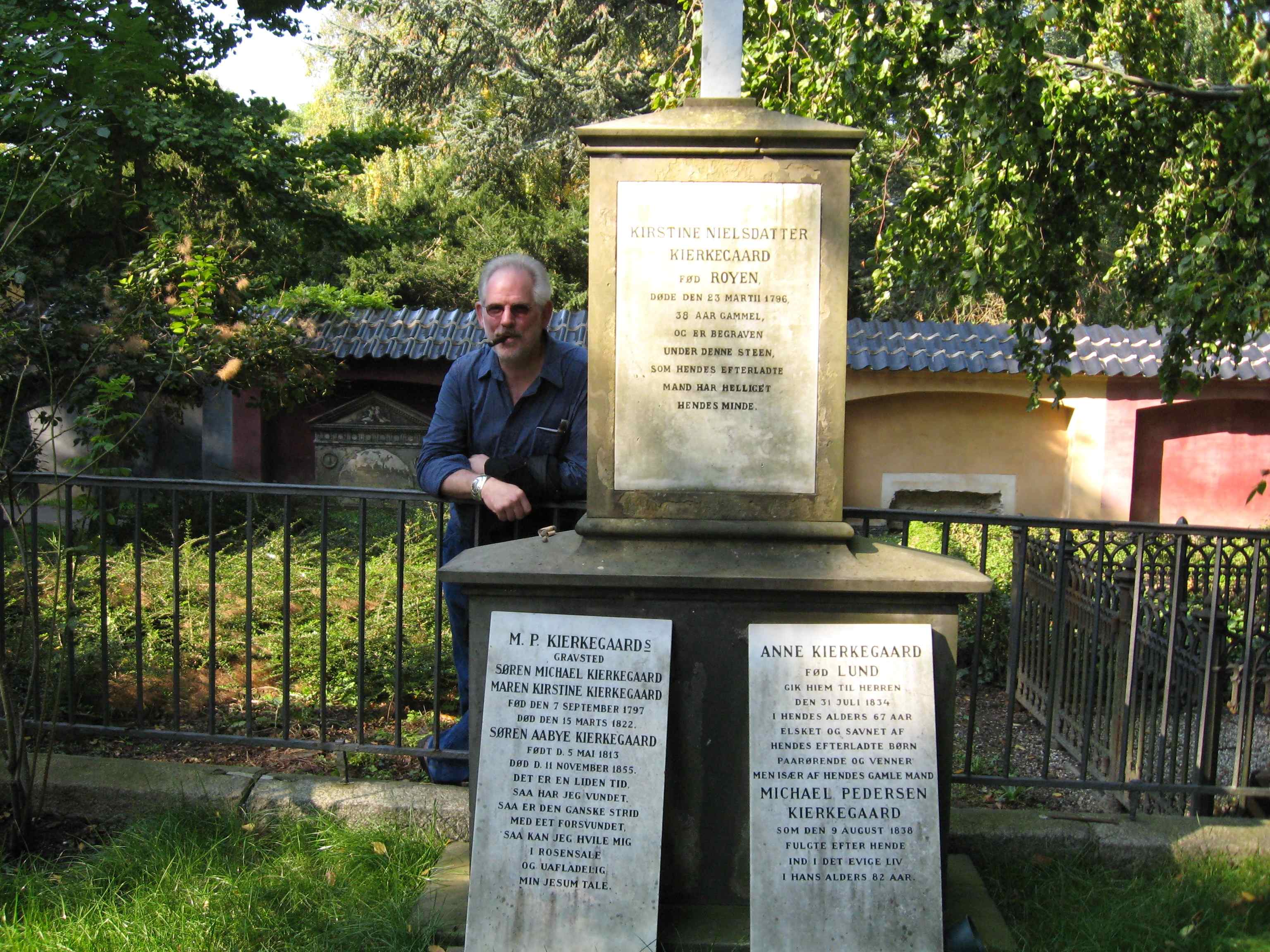



 How the theologically provocative author of Fear and Trembling became one of those writers is difficult to say. I was reading Sartre in college, without understanding him much, because existentialism seemed like the cool philosophical trend of the time. Camus had a more concrete impact. I remember thinking that The Myth of Sisyphus did more than even ale could to “justify God’s ways to man.” But working backward through existentialist chronology, I ran into Heidegger, Husserl, Nietzsche, and finally Kierkegaard, and while I would later explore the others, it was only this last who grabbed deeply into my imagination. Perhaps I was attracted by the glancing resemblance of his last name to my full name, or the coincidence that he died almost exactly a century before I was born. More likely his position as the first phenomenologist of anxiety, fear, and depression offered a promise of kinship to my adolescent introversion. Whatever the underlying psychology, I spent, at Oberlin, a depressive, reclusive year reading almost half of the 43 books Kierkegaard wrote in his feverish 17 years of authorial activity, ignoring all else. The next year, once that fetish had played out, I sank even further into the abyss and read nothing but Samuel Beckett, who at least had the advantage of being considerably more concise. The less said about that spiritual crisis, the better. Suffice it to say that Godot did not arrive.
How the theologically provocative author of Fear and Trembling became one of those writers is difficult to say. I was reading Sartre in college, without understanding him much, because existentialism seemed like the cool philosophical trend of the time. Camus had a more concrete impact. I remember thinking that The Myth of Sisyphus did more than even ale could to “justify God’s ways to man.” But working backward through existentialist chronology, I ran into Heidegger, Husserl, Nietzsche, and finally Kierkegaard, and while I would later explore the others, it was only this last who grabbed deeply into my imagination. Perhaps I was attracted by the glancing resemblance of his last name to my full name, or the coincidence that he died almost exactly a century before I was born. More likely his position as the first phenomenologist of anxiety, fear, and depression offered a promise of kinship to my adolescent introversion. Whatever the underlying psychology, I spent, at Oberlin, a depressive, reclusive year reading almost half of the 43 books Kierkegaard wrote in his feverish 17 years of authorial activity, ignoring all else. The next year, once that fetish had played out, I sank even further into the abyss and read nothing but Samuel Beckett, who at least had the advantage of being considerably more concise. The less said about that spiritual crisis, the better. Suffice it to say that Godot did not arrive. All this prologue is to set up how excited I was to receive in the mail this weekend the Innova recording of the Concord Sonata – orchestrated by Henry Brant. In addition to being the leading composer for spatially separated ensembles, Brant has always had a reputation (furthered by Virgil Thomson’s writings from way back) as one of the greatest orchestrators ever. I heard his orchestration of the Concord, quite aptly retitled A Concord Symphony, at its New York premiere back in 1996, and was blown away then. This live recording by Dennis Russell Davies and Holland’s Royal Concertgebouw Orchestra makes it even more exquisite.
All this prologue is to set up how excited I was to receive in the mail this weekend the Innova recording of the Concord Sonata – orchestrated by Henry Brant. In addition to being the leading composer for spatially separated ensembles, Brant has always had a reputation (furthered by Virgil Thomson’s writings from way back) as one of the greatest orchestrators ever. I heard his orchestration of the Concord, quite aptly retitled A Concord Symphony, at its New York premiere back in 1996, and was blown away then. This live recording by Dennis Russell Davies and Holland’s Royal Concertgebouw Orchestra makes it even more exquisite. And so Mike Maguire and I have completely remade my one-man music theater piece Custer and Sitting Bull. Mike (whose composing name is M.C. Maguire) is not only one of the most surprising and innovative composers around, but an expert commercial sound engineer with broad experience in commercials and film. So I gave him the MIDI files and some general pointers, and he’s completely refitted the piece with new sounds, from the ground up – we got together in Toronto to go over the results with a fine-tooth comb. Mike’s sounds are indeed grittier, livelier, more energetic than the ones Dale Hourlland and I had once coaxed out of 1999 technology, but – what’s most important to me – they feel as supple and definite to perform with. I hope this stills some of the complaints I get about my electronic timbres, and if not, that’s the end of the line – my music is not for everyone. It’s my observation that some people are so attuned by pop music that they can listen only to production, to the extent that distinctions of syntax escape them if unorthodox production values get in the way. And then, to people reluctant to bend their ears to it, microtonal music will always sound simply out-of-tune, and the strangeness gets projected onto other elements as well.
And so Mike Maguire and I have completely remade my one-man music theater piece Custer and Sitting Bull. Mike (whose composing name is M.C. Maguire) is not only one of the most surprising and innovative composers around, but an expert commercial sound engineer with broad experience in commercials and film. So I gave him the MIDI files and some general pointers, and he’s completely refitted the piece with new sounds, from the ground up – we got together in Toronto to go over the results with a fine-tooth comb. Mike’s sounds are indeed grittier, livelier, more energetic than the ones Dale Hourlland and I had once coaxed out of 1999 technology, but – what’s most important to me – they feel as supple and definite to perform with. I hope this stills some of the complaints I get about my electronic timbres, and if not, that’s the end of the line – my music is not for everyone. It’s my observation that some people are so attuned by pop music that they can listen only to production, to the extent that distinctions of syntax escape them if unorthodox production values get in the way. And then, to people reluctant to bend their ears to it, microtonal music will always sound simply out-of-tune, and the strangeness gets projected onto other elements as well.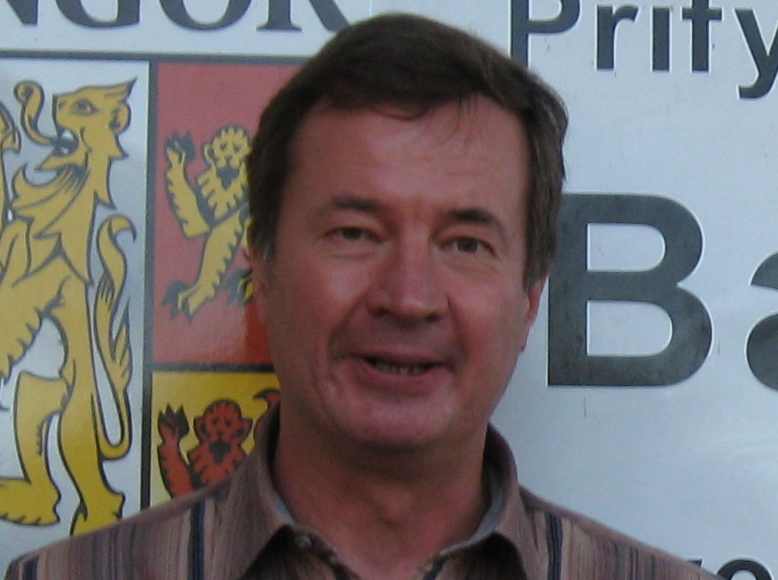 But you knew I’d come back from a minimalism conference with some new obscuuuuuuuure recordings for
But you knew I’d come back from a minimalism conference with some new obscuuuuuuuure recordings for  And on the subject of Serbian postminimalism, which I’m sure you’ve brought up at a cocktail party by now, I’m happy to present several pieces by my new friend
And on the subject of Serbian postminimalism, which I’m sure you’ve brought up at a cocktail party by now, I’m happy to present several pieces by my new friend 


